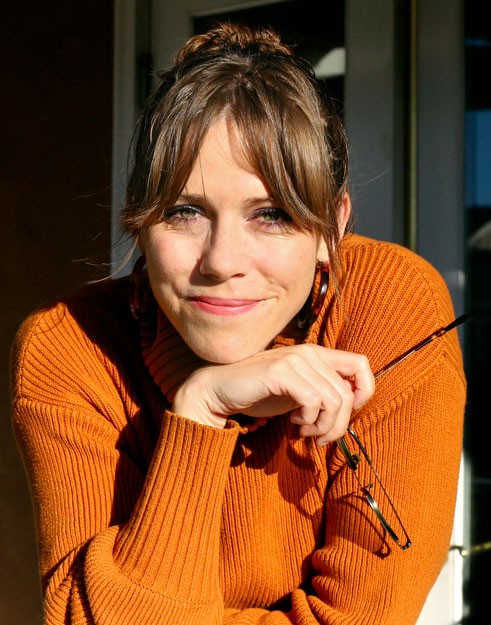The New York Times bestselling author of The Buddha and the Badass and The Code of the Extraordinary Mind hacks meditation with his signature hyper-efficient 6 Phase Meditation Program that anyone can make time for.
THE SIX PHASE MEDITATION METHOD:
The Proven Technique to Supercharge Your Mind, Smash Your Goals, and Make Magic in Minutes a Day
by Vishen Lakhiani
Rodale, September 2022
 There are hundreds of types of meditation out there. But entrepreneur Vishen Lakhiani credits his success to a condensed, magic-making, joy-creating, productivity-inducing, goal-smashing mega meditation: The 6 Phase Meditation. He pulled from thousands of years of psycho-spiritual wisdom, cherry-picked the best bits, translated it all into plain English, and put it into a logical, 15-minute practice that anyone can master. The 6 phases are centered on Connection, Gratitude, Forgiveness, Envisioning Your Future, Daily Intention, and Blessing, and only demand 15 minutes of your day. One of the side effects of this particular meditation is increased focus and reduced anxiety as you shift from overwhelm to overwellness—Vishen’s word for an optimum level of balance in all aspects of your life.
There are hundreds of types of meditation out there. But entrepreneur Vishen Lakhiani credits his success to a condensed, magic-making, joy-creating, productivity-inducing, goal-smashing mega meditation: The 6 Phase Meditation. He pulled from thousands of years of psycho-spiritual wisdom, cherry-picked the best bits, translated it all into plain English, and put it into a logical, 15-minute practice that anyone can master. The 6 phases are centered on Connection, Gratitude, Forgiveness, Envisioning Your Future, Daily Intention, and Blessing, and only demand 15 minutes of your day. One of the side effects of this particular meditation is increased focus and reduced anxiety as you shift from overwhelm to overwellness—Vishen’s word for an optimum level of balance in all aspects of your life.
No matter what you’ve got going on, you can thrive because you’ve trained for all of life’s insanity on your meditation cushion.
Vishen Lakhiani is the founder and CEO of Mindvalley, a personal growth education empire with more than two million students, which teaches revolutionary success systems for mastering life via online learning platforms, storytelling and filmmaking, and live events. He is the author of New York Times bestsellers The Buddha and the Badass and The Code of the Extraordinary Mind.

 At first glance, human history is full of remarkable feats of intelligence. We invented writing. Produced incredible achievements in music, the arts, and the sciences. We’ve built sprawling cities and traveled across oceans—and space—and expanded to every part of the globe.
At first glance, human history is full of remarkable feats of intelligence. We invented writing. Produced incredible achievements in music, the arts, and the sciences. We’ve built sprawling cities and traveled across oceans—and space—and expanded to every part of the globe. When wellness teachers and husband-wife duo Chelsey Luger and Thosh Collins founded their Indigenous wellness initiative, Well for Culture, they extended an invitation to all to honor their whole self through Native wellness philosophies and practices. In reclaiming this ancient wisdom for health and wellbeing—drawing from traditions spanning multiple tribes—they developed a holistic model for modern living rooted in timeless teachings from their ancestors. Luger and Collins have introduced this universally adaptable template for living well to Ivy League universities and corporations like Nike, Adidas, and Google, and now make it available to everyone in this wise guide.
When wellness teachers and husband-wife duo Chelsey Luger and Thosh Collins founded their Indigenous wellness initiative, Well for Culture, they extended an invitation to all to honor their whole self through Native wellness philosophies and practices. In reclaiming this ancient wisdom for health and wellbeing—drawing from traditions spanning multiple tribes—they developed a holistic model for modern living rooted in timeless teachings from their ancestors. Luger and Collins have introduced this universally adaptable template for living well to Ivy League universities and corporations like Nike, Adidas, and Google, and now make it available to everyone in this wise guide. As physical life on earth grows increasingly fraught and imperiled, technology moves to take us out of our bodies and into our screens. Capital is flooding into the development of the metaverse, designed to engulf us even more fully in tech’s trackable, commodifiable sphere.
As physical life on earth grows increasingly fraught and imperiled, technology moves to take us out of our bodies and into our screens. Capital is flooding into the development of the metaverse, designed to engulf us even more fully in tech’s trackable, commodifiable sphere. Each year, thousands of refugees hailing from far-flung origins in South Asia and sub-Saharan Africa pay anywhere from $20,000 to upwards of $60,000 a head to traverse the Western Hemisphere, using the Americas as a cross-continental land bridge to the U.S.-Mexico border. They all follow a nearly identical path: Beginning in Brazil; then on to Peru; then Ecuador; followed by Colombia, Panama, Costa Rica, Nicaragua, Honduras, and Guatemala, to reach Mexico. Last stop—the United States. A broken U.S. immigration system and the largest displacement of people in modern history, with some 50 million more migrants today than even just a decade ago, have together birthed this billiondollar black market of smuggling human beings across the world to the United States’ doorstep. This is “The Route.” No journalist or writer has covered “The Route” from start to finish—Molly O’Toole will be the first to do so. THE ROUTE
Each year, thousands of refugees hailing from far-flung origins in South Asia and sub-Saharan Africa pay anywhere from $20,000 to upwards of $60,000 a head to traverse the Western Hemisphere, using the Americas as a cross-continental land bridge to the U.S.-Mexico border. They all follow a nearly identical path: Beginning in Brazil; then on to Peru; then Ecuador; followed by Colombia, Panama, Costa Rica, Nicaragua, Honduras, and Guatemala, to reach Mexico. Last stop—the United States. A broken U.S. immigration system and the largest displacement of people in modern history, with some 50 million more migrants today than even just a decade ago, have together birthed this billiondollar black market of smuggling human beings across the world to the United States’ doorstep. This is “The Route.” No journalist or writer has covered “The Route” from start to finish—Molly O’Toole will be the first to do so. THE ROUTE